Bill Douglas: Festival to mark great Scottish film-maker
- Published
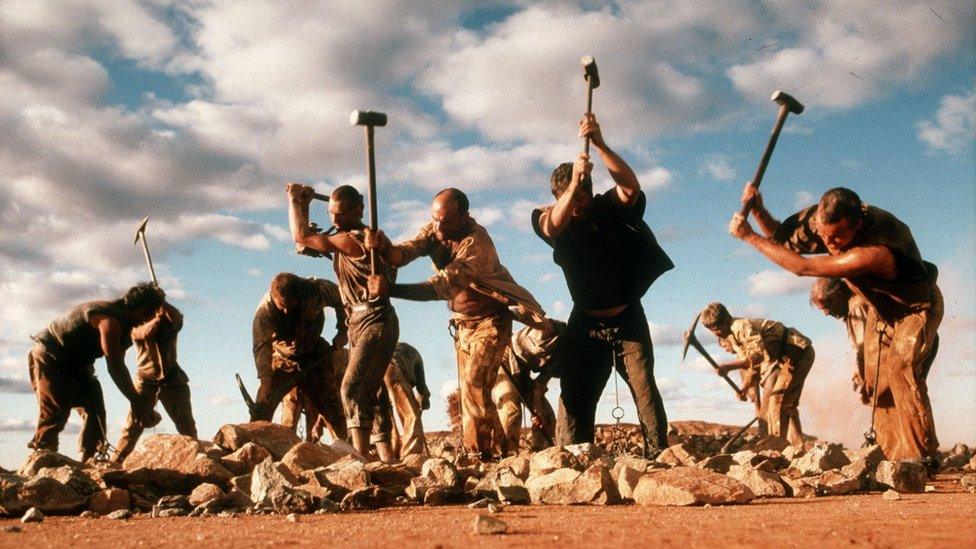
Comrades was Bill Douglas's most ambitious, and final, film
Bill Douglas made just four fairly obscure films in his 20 year career yet he is venerated by many as one of Scotland's greatest directors.
Now, more than 30 years after his death, he is being celebrated with the Glasgow Film Festival, external premiere of a documentary about his life and the relationship which shaped his development as an artist.
Bill's early amateur films, made as he was learning his craft in the late 1960s, will have their public premiere days later at the Glasgow Short Film Festival, external.
It is fair to say that his work was never meant for mainstream cinema audiences. Intensely personal, austere and poetic in style, they tell their stories through fragmented moments rather than conventional narratives.
They are often hard to watch, unflinching in their depiction of poverty, cruelty and neglect.
In the new documentary - Bill Douglas: My Best Friend, external - the Scottish film-maker Lynne Ramsay compares him to two of the greatest film directors of all time.
"If you care about film-making you should watch Bill Douglas. It's just the same as Stanley Kubrick or (Andrei) Tarkovsky...it's up there with Tarkovsky," she said.
So who was Bill Douglas and why is he so highly regarded by film lovers?
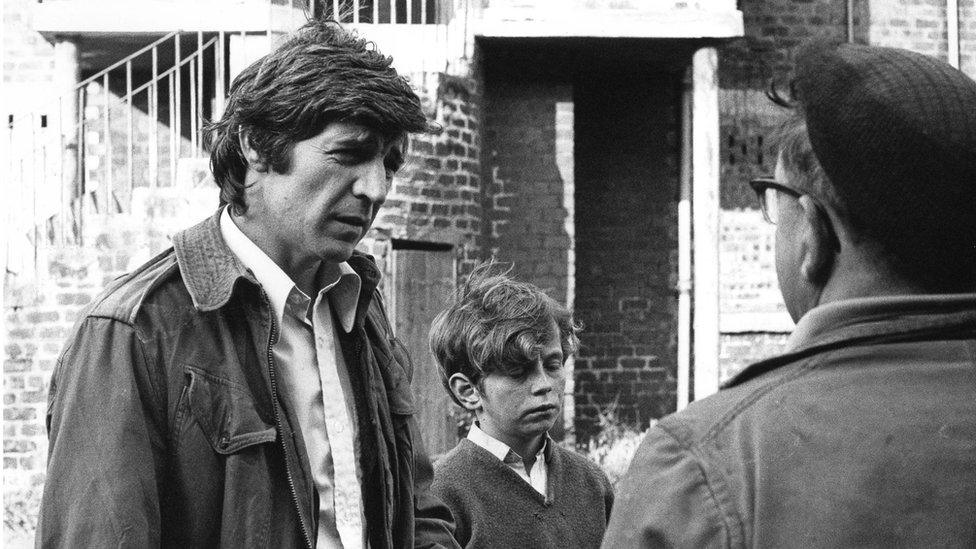
Bill Douglas directing Stephen Archibald from Craigmillar as his fictional self in his trilogy
He was born in 1934 in the mining village of Newcraighall, near Edinburgh.
His first three films, made between 1972 and 1978, were My Childhood, My Ain Folk and My Way Home. Filmed in stark black and white, the appalling poverty they depict was drawn directly from his own experiences.
His journey from that poverty to acclaimed writer and director began during his National Service in the Egyptian desert in the 1950s, where he met the man who would become his lifelong companion, Peter Jewell.
Peter was English, educated and interested in culture, books and especially films. They bonded and went on to share a home as friends for more than 30 years.
Their meeting is the climax of the film My Way Home, where Peter's fictional counterpart is depicted as the person who opens up a whole new world to the main character.
Bill went on to act before attending film school in the late 1960s. His student films caught the attention of the British Film Institute (BFI) and he began directing the work which would make his reputation.
Now 89 and still living in the Devon home he shared with Bill, Peter is delighted with the resurgence of interest in his friend's work.
"This is the fifth documentary about Bill. I don't know how many other filmmakers have had so many," he said.
"The reputation of his films has just grown and grown. When he died he wasn't terribly famous. They say that you have to wait 20 years after you die to discover whether you will be remembered. Well, because of DVDs and Blu-Rays his films are still being commented upon."
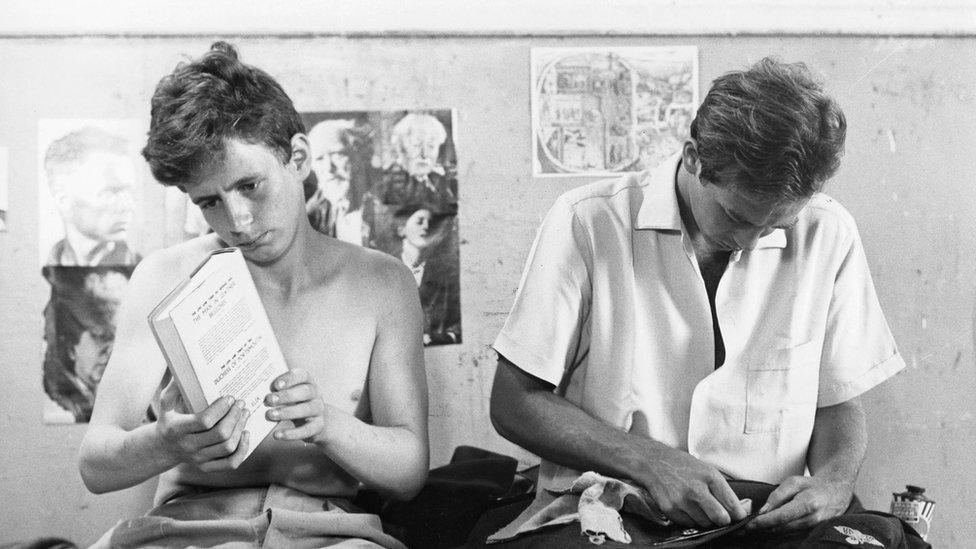
The final film in his trilogy depicts a fictional versions of Bill and Peter meeting on National Service in Egypt
The restoration of Bill's amateur films for the Glasgow Short Film Festival was a chance for Peter to get to know the works again.
"They are all completely different from one another. It's like he was experimenting with every possible genre before he decided on a different tack", he said.
The director of the new documentary is Scotland-based Jack Archer. He is excited by the discovery of Bill's early experiments in directing.
"Watching them was like flicking through Leonardo Da Vinci's notebook. They demonstrated not only his developing style and director's eye but also the impact his friend Peter Jewell had on his life and career," he said.
"Meeting Peter, it became clear that his telling of the story of their life together should be the centre of the film. Bill remains a huge part of his life even 30 years after his death. He still finds it hard to define their friendship, emphasising that it wasn't a sexual one.
"Their friendship was platonic in the true meaning of the term, a spiritual rather than physical relationship formed around an appreciation of culture and an obsession for cinema," he added.
Peter compares their friendship to the personal and professional relationship of film-makers Michael Powell and Emeric Pressberger, which Powell described as a "marriage without sex".
Peter said: "It might be not as uncommon as people imagine. There may be more people who fit into that category."
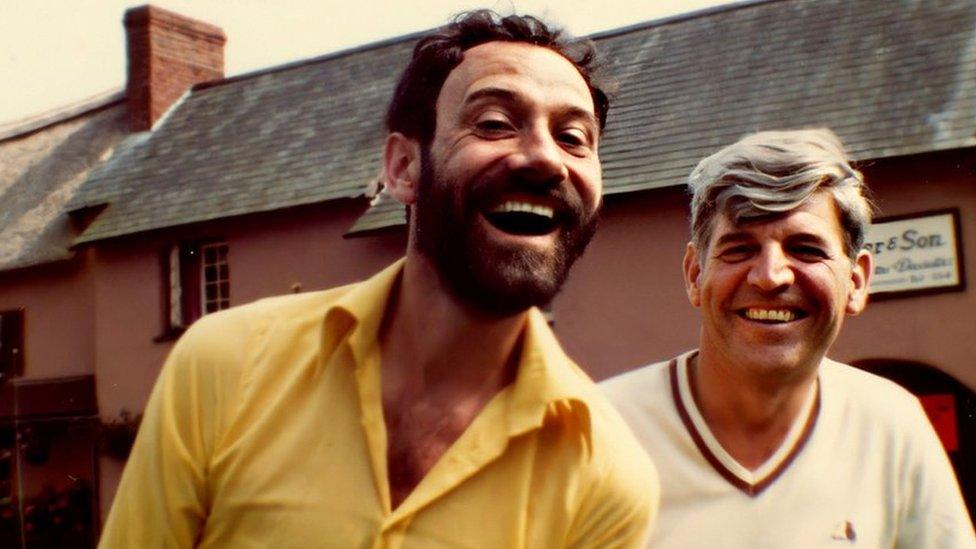
Peter Jewell (left) and Bill Douglas lived together for more than 30 years
The Scottish actor Alex Norton worked with Bill on what turned out to be the director's final film.
Comrades is a three-hour telling of the story of the Tolpuddle Martyrs, a group of six Dorset agricultural workers who were transported to Australia in the 1830s for forming an early trade union.
For Alex, it was a chance to work with a hero whose work he had admired since seeing the trilogy on the BBC.
"I was completely transformed by it. I'd never seen anything depicting working class life so intensely as that," he said.
"And I never worked with anyone like him again. It was a really unique experience and everything was just a gig after that.
"He was such a joy to work with."
Comrades had taken years to set up and after a long delay was released in 1987. It was not a success though both Peter and Alex regard it as a masterpiece which has been unjustly neglected.
Bill continued to work on projects, completing a script adaptation of the Scottish writer James Hogg's Confessions Of A Justified Sinner.
But he never made another film. He died of lung cancer in June 1991, aged just 57. His legacy, however, is strong.
He and Peter had amassed an enormous collection of film books, memorabilia and equipment which forms the basis of the Bill Douglas Cinema Museum, external at the University of Exeter.
For Peter, the coming celebrations in Glasgow, which also mark the year Bill would have turned 90, are a chance to get his work known by a new audience.
He said: "I just hope that the younger generation discover that there is a film-maker called Bill Douglas and they see his films and we can talk about these films that were made decades ago but still have an influence."
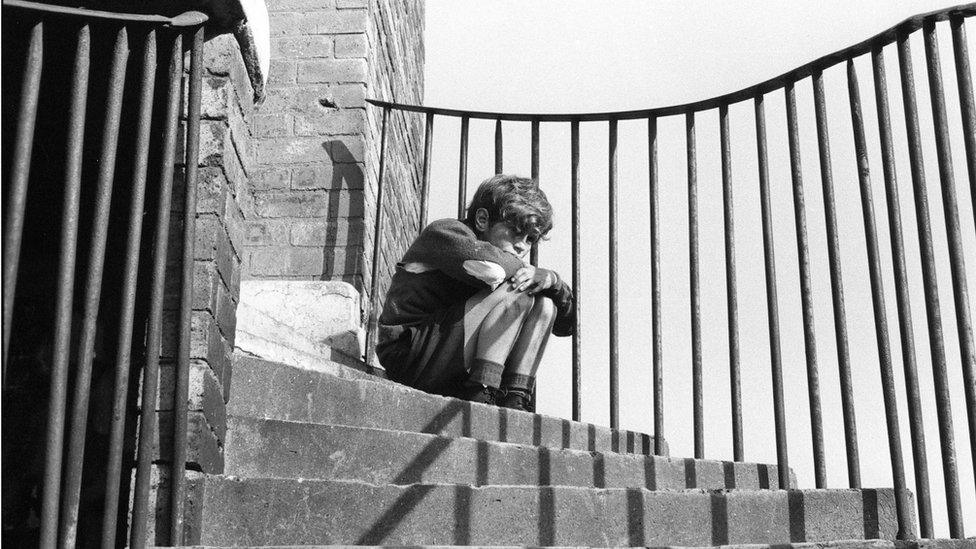
The acclaimed My Childhood was based on Bill's childhood in Newcraighall
Bill Douglas: My Best Friend will be shown at the Glasgow Film Festival On 8 March. Bill Douglas's amateur short films will premier at the Glasgow Short Film Festival on 20 March.